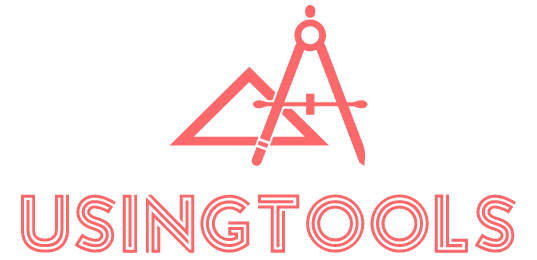Freelancing is a rapidly growing work style that involves offering services or skills to multiple clients on a project-by-project basis, rather than being employed by a single company. As a freelancer, you are essentially running your own business, which means you have the freedom to choose your projects, set your own schedule, and work from anywhere. However, this flexibility also comes with unique challenges, particularly when it comes to productivity.
Productivity is crucial for freelancers because your income directly depends on the amount of work you can complete efficiently. Unlike traditional employment, where you receive a fixed salary, freelancers are paid based on the projects they deliver or the hours they work. Therefore, optimizing your productivity can lead to increased earnings, better time management, and a healthier work-life balance.
One of the biggest challenges faced by freelancers is the lack of a structured work environment. Without the structure and accountability of a traditional office setting, it can be easy to fall into procrastination, distractions, and poor time management habits. Additionally, freelancers often juggle multiple projects and clients simultaneously, which can lead to overwhelming workloads and stress if not managed effectively.
Table of Contents
Time Management Tools
Effective time management is crucial for freelancers to stay on top of their workload and meet deadlines. One popular technique is the Pomodoro method, which involves working in focused bursts of 25 minutes followed by short breaks. Pomodoro timers like Tomato Timer or Forest help you implement this technique and avoid distractions.
Calendar apps like Google Calendar or Calendly are also essential for scheduling tasks, meetings, and appointments. They allow you to block off time for specific projects and ensure you’re not overbooked. Many calendar apps offer features like reminders, recurring events, and integration with other productivity tools.
Time tracking software, such as Toggl or RescueTime, is invaluable for freelancers who bill by the hour or need to analyze how they’re spending their time. These tools automatically track the time spent on different projects or tasks, making it easier to create accurate invoices and identify areas where you might be losing productivity.
By leveraging these time management tools, freelancers can stay organized, prioritize their workload, and ensure they’re using their time efficiently, ultimately leading to increased productivity and better work-life balance.
Project Management and Collaboration Tools
As a freelancer, effective project management and collaboration tools are essential for staying organized, meeting deadlines, and maintaining clear communication with clients and team members. These tools streamline workflows, facilitate task tracking, and enable seamless file sharing and real-time collaboration.
Task Managers: Task managers are invaluable for freelancers juggling multiple projects and deadlines. Tools like Trello, Asana, and Todoist allow you to create task lists, assign due dates, and prioritize your workload. With features like kanban boards, calendar views, and reminders, you can visualize your tasks and ensure that nothing slips through the cracks.
Team Communication Apps: Effective communication is crucial when working with clients or collaborating with other freelancers. Apps like Slack, Microsoft Teams, and Zoom facilitate real-time messaging, video conferencing, and file sharing. These tools ensure that everyone stays on the same page, enabling seamless collaboration and reducing the need for endless email threads.
File Sharing Platforms: Freelancers often need to share and collaborate on documents, designs, or other files with clients and team members. Cloud-based file sharing platforms like Google Drive, Dropbox, and Box offer secure file storage and easy sharing capabilities. With features like version control, real-time collaboration, and access permissions, these platforms streamline file management and ensure that everyone is working with the latest versions.
By leveraging project management and collaboration tools, freelancers can boost their productivity, enhance communication, and deliver high-quality work to their clients while maintaining a healthy work-life balance.

Productivity Apps and Browser Extensions
Productivity apps and browser extensions can be powerful allies in the fight against distractions and inefficiencies. One category that can significantly boost focus is website blockers. These tools allow you to block or limit access to distracting websites during designated work hours. Popular options include Freedom, Cold Turkey, and FocusMe. By eliminating temptations like social media or news sites, you can stay immersed in your work without constant interruptions.
Note-taking apps are another essential tool for freelancers. They provide a centralized place to capture ideas, organize research, and create to-do lists. Apps like Evernote, OneNote, and Notion offer robust features like multimedia notes, collaboration tools, and seamless syncing across devices. Having a reliable note-taking system can streamline your workflow and prevent important information from slipping through the cracks.
Password managers are often overlooked but can be a game-changer for productivity. With so many online accounts and passwords to manage, password managers like LastPass, 1Password, and KeePass can securely store and autofill your login credentials, saving you time and frustration. Many also offer additional features like secure note storage and form-filling capabilities, further simplifying your digital life.
Browser extensions can also enhance productivity by providing quick access to useful tools and features. For example, Grammarly can catch spelling and grammar errors as you type, while Toby for Chrome can track your time spent on websites and tasks. Momentum replaces new tab pages with a personal dashboard featuring a daily focus, to-do list, and inspirational quotes to keep you motivated throughout the day.
Automation and Workflow Tools
Automation and workflow tools are a game-changer for freelancers looking to streamline their processes and boost productivity. These tools allow you to automate repetitive tasks, integrate various apps and services, and create custom workflows tailored to your specific needs.
IFTTT and Zapier
IFTTT (If This Then That) and Zapier are two popular automation platforms that connect different apps and services through a series of triggers and actions. With IFTTT and Zapier, you can create custom “recipes” or “zaps” to automate tasks across multiple platforms. For example, you can automatically save email attachments to a cloud storage service, create tasks in your project management app based on new emails, or post updates to social media when you publish a new blog post.
Automation Scripts
For more advanced automation needs, you can explore scripting languages like Python, Ruby, or Bash. With these languages, you can write custom scripts to automate various tasks, such as file management, data processing, or web scraping. Automation scripts can be particularly useful for freelancers working with large datasets, repetitive tasks, or complex workflows.
Email Management
Email can be a significant productivity drain for freelancers, with endless messages vying for attention. Email management tools like SaneBox, Unroll.me, and Boomerang can help you declutter your inbox, unsubscribe from unwanted emails, and schedule messages for later delivery. These tools can also help you prioritize important emails and snooze non-urgent messages until a more convenient time.
By leveraging automation and workflow tools, freelancers can save time, reduce errors, and focus on more creative and high-value tasks. However, it’s important to strike a balance and not over-automate to the point where you lose control or flexibility. Regularly review and optimize your automated processes to ensure they align with your evolving needs and goals.
Accounting and Invoicing Software
As a freelancer, managing your finances and keeping track of expenses is crucial for success. Accounting and invoicing software can streamline these processes, saving you time and ensuring accuracy. These tools typically offer features like invoicing, expense tracking, tax preparation, and financial reporting.
Invoicing is a critical aspect of getting paid as a freelancer. Invoicing software allows you to create professional-looking invoices with ease, including your branding, project details, and payment terms. Many tools offer customizable invoice templates, automatic reminders for outstanding payments, and the ability to accept online payments. This not only streamlines your billing process but also helps maintain a professional image with clients.
Expense tracking is another essential feature for freelancers. Keeping accurate records of your business expenses can be time-consuming, but accounting software automates this process. You can easily categorize and track expenses, attach receipts, and generate reports for tax purposes. Some tools even offer mobile apps for tracking expenses on-the-go.
Tax preparation is a daunting task for many freelancers, but accounting software can simplify the process. These tools often integrate with tax software or provide tax-specific features, such as automatically calculating estimated quarterly taxes, tracking deductible expenses, and generating tax reports. This can save you time and reduce the risk of errors when filing your taxes.
Financial reporting is another valuable feature offered by accounting software. You can generate comprehensive reports on your income, expenses, and profitability, giving you a clear picture of your financial health. This information can help you make informed business decisions, identify areas for improvement, and plan for the future.
Overall, investing in accounting and invoicing software can significantly improve your productivity and financial management as a freelancer. By streamlining processes like invoicing, expense tracking, and tax preparation, you can focus more time and energy on your core work, while ensuring accurate and professional financial practices.
Productivity Habits and Mindset
Embracing a productivity-focused mindset and developing effective habits are crucial for freelancers to maximize their output and achieve their goals. One powerful technique is time blocking, which involves dedicating specific blocks of time to specific tasks or projects. By segmenting your day into focused intervals, you can minimize distractions and increase your concentration, ultimately boosting your productivity.
Single-tasking, or the practice of focusing on one task at a time, is another valuable habit to cultivate. Multitasking may seem efficient, but it often leads to decreased productivity, increased errors, and higher stress levels. By giving your undivided attention to a single task, you can complete it more efficiently and with higher quality.
Minimizing distractions is also essential for maintaining productivity as a freelancer. Distractions can come in many forms, such as social media notifications, email alerts, or even background noise. To combat these productivity killers, consider implementing strategies like turning off notifications, using website blockers, or creating a dedicated workspace free from distractions.
Additionally, it’s important to prioritize self-care and maintain a healthy work-life balance. Burnout is a common issue among freelancers, and it can significantly impact productivity. Make sure to schedule breaks, engage in physical activity, and prioritize rest and relaxation to avoid exhaustion and maintain a clear mindset.
Work-Life Balance for Freelancers
Maintaining a healthy work-life balance is crucial for freelancers to avoid burnout and sustain productivity in the long run. As a freelancer, you have the flexibility to create your own schedule, but this freedom can also lead to overworking and neglecting personal time.
Setting Boundaries
One of the key strategies for achieving work-life balance is setting clear boundaries between your work and personal life. Establish specific work hours and stick to them as much as possible. When you’re not working, make a conscious effort to disconnect from work-related tasks and communications. This will help you recharge and prevent work from encroaching on your personal time.
Self-Care
Prioritizing self-care is essential for freelancers to manage stress and maintain overall well-being. Make time for activities that nourish your mind, body, and soul, such as exercise, meditation, hobbies, or spending time with loved ones. Taking care of yourself will help you stay energized, focused, and motivated in your work.
Managing Stress
Freelancing can be stressful, with the constant pressure of meeting deadlines, managing client expectations, and juggling multiple projects. Develop effective stress management techniques, such as deep breathing exercises, journaling, or seeking support from a therapist or a freelancer community. Identifying and addressing sources of stress early on can prevent burnout and maintain a healthy work-life balance.
By setting boundaries, practicing self-care, and managing stress effectively, freelancers can achieve a harmonious balance between their work and personal lives, leading to increased productivity, job satisfaction, and overall well-being.
Productivity in Coworking Spaces
As a freelancer, working from home can often lead to distractions and a lack of motivation. Coworking spaces provide a dedicated work environment that can help boost productivity and creativity. These shared office spaces offer a range of benefits for freelancers, including:
Professional Environment: Coworking spaces are designed to foster a productive and professional atmosphere, with dedicated desks, meeting rooms, and amenities like high-speed internet, printers, and coffee stations.
Networking Opportunities: One of the biggest advantages of coworking spaces is the opportunity to connect with other professionals from various industries. This can lead to potential collaborations, referrals, or even new business opportunities.
Separation of Work and Home: By having a dedicated workspace outside of the home, freelancers can create a clear separation between their work and personal life, which can improve focus and productivity.
Structured Routine: Coworking spaces often have set operating hours, which can help freelancers establish a more structured routine and maintain a work-life balance.
Community and Motivation: Being surrounded by other professionals working towards their goals can create a sense of community and provide motivation, especially during those times when freelancing can feel isolating.
When choosing a coworking space, it’s essential to consider factors such as location, amenities, cost, and the overall vibe of the space. Some spaces may cater more to specific industries or offer additional services like workshops or events. It’s also a good idea to visit potential spaces and get a feel for the environment before committing.
Staying Motivated and Productive Long-Term
As a freelancer, maintaining motivation and productivity over the long haul can be a significant challenge. The lack of a structured work environment, the absence of coworkers, and the constant need to find new clients can take a toll on your drive and focus. However, by implementing effective strategies, you can overcome these obstacles and sustain your productivity levels.
Goal Setting and Planning
Setting clear and achievable goals is crucial for staying motivated and productive. Start by breaking down your larger objectives into smaller, actionable steps. Create a roadmap that outlines your priorities, deadlines, and milestones. Regularly review and adjust your goals to ensure they remain relevant and aligned with your long-term vision.
Overcoming Productivity Challenges
Freelancers often face unique productivity challenges, such as procrastination, distractions, and burnout. To combat these issues, it’s essential to develop a routine that works for you. Experiment with different techniques, such as the Pomodoro technique, time blocking, or the Eisenhower Matrix, to find the approach that helps you stay focused and efficient.
Continuous Learning and Growth
Embracing a mindset of continuous learning can help you stay motivated and productive in the long run. Seek out opportunities to expand your skills and knowledge, whether through online courses, workshops, or networking events. Staying up-to-date with industry trends and best practices will not only enhance your expertise but also reignite your passion for your work.
Celebrating Wins and Practicing Self-Care
Recognizing and celebrating your accomplishments, no matter how small, can provide a sense of satisfaction and motivation. Take the time to acknowledge your achievements and reward yourself for your hard work. Additionally, prioritizing self-care activities, such as exercise, meditation, or hobbies, can help you recharge and maintain a healthy work-life balance, ultimately contributing to your overall productivity and well-being.



